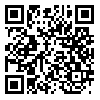Volume 7, Issue 2 (volume7, Issue 2 2019)
CPJ 2019, 7(2): 101-120 |
Back to browse issues page
Download citation:
BibTeX | RIS | EndNote | Medlars | ProCite | Reference Manager | RefWorks
Send citation to:



BibTeX | RIS | EndNote | Medlars | ProCite | Reference Manager | RefWorks
Send citation to:
Nemati S, Baetminan M. Digit Span in Children with and Without Nonverbal Learning Disorders. CPJ 2019; 7 (2) :101-120
URL: http://jcp.khu.ac.ir/article-1-3166-en.html
URL: http://jcp.khu.ac.ir/article-1-3166-en.html
, Sh.Nemati@tabrizu.ac.ir
Abstract: (7856 Views)
The aim of current research was to study digit span in students with and without nonverbal learning disorders. Methods:In this ex post facto research, the sample included the students with and without nonverbal learning disorders. For this purpose, sixty preschool children ageing 10/83 years included 30 students with nonverbal learning disorders who screened by the Goldstein Nonverbal Learning Disabilities Scale by means To fulfill the stated goal sampling and 30 typical male students by simple random sampling who live in the city of Tehran in the years 2014 and 2015 were selected and the digit span subtest in working memory index in WISC-IV were used to gather the data. The Mann-Whitney U test revealed that there is a significant difference between two groups in forward and backward digit span, thus the typical children have an outstanding performance rather than nonverbal learning disordersIn comparison of two groups, a t-test’s statistical significance revealed that the typical children have an outstanding performance in digit span as well. The training of short-term and working memory strategy are needed to children with nonverbal learning disorders.
the significant difference between the two groups of children with nonverbal learning disabilities and normal children in digit span in both in forward and backward digit span memory provided sufficient psychological evidence in support of research findings related to working memory deficits toward developmental disabilities and nonverbal learning disorders as well.
the significant difference between the two groups of children with nonverbal learning disabilities and normal children in digit span in both in forward and backward digit span memory provided sufficient psychological evidence in support of research findings related to working memory deficits toward developmental disabilities and nonverbal learning disorders as well.
Type of Study: Research |
Subject:
Special
Received: 2019/10/30 | Accepted: 2020/02/24 | Published: 2020/02/24
Received: 2019/10/30 | Accepted: 2020/02/24 | Published: 2020/02/24
Send email to the article author
| Rights and permissions | |
 |
This work is licensed under a Creative Commons Attribution-NonCommercial 4.0 International License. |






